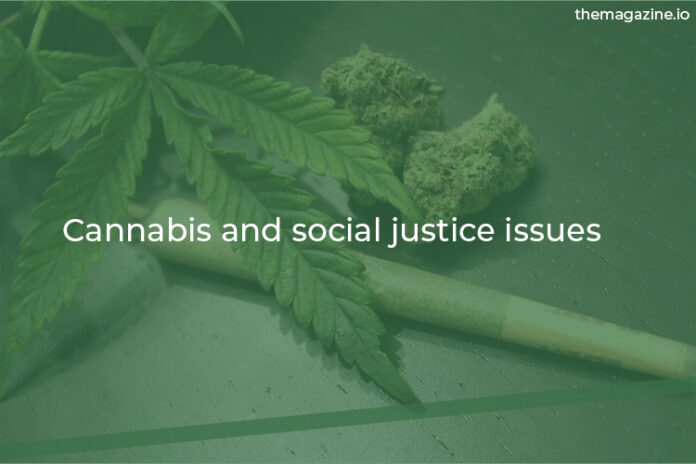Cannabis has been a contentious topic in the United States for many years. Historically, cannabis was widely used for medicinal and recreational purposes until the early 20th century when it was prohibited for both medical and recreational use. In recent years, there has been a growing movement to legalize cannabis, with many states legalizing it for medical and/or recreational use. However, the legalization of cannabis is not without controversy, particularly when it comes to social justice issues.
One of the key social justice issues surrounding cannabis is the disproportionate impact of drug laws on minority communities. Studies have consistently shown that Black and Latino communities are more likely to be arrested and incarcerated for cannabis-related offenses than White communities, despite similar usage rates. In some cases, people of color are up to six times more likely to be arrested for cannabis offenses than White people. This is due in part to systemic racism within law enforcement and the criminal justice system, as well as the disproportionate policing of minority communities.
Another social justice issue related to cannabis is the impact of prohibition on marginalized communities. The War on Drugs, which began in the 1970s, has resulted in the mass incarceration of millions of people, many of whom were convicted of nonviolent drug offenses. This has disproportionately affected low-income communities, communities of color, and other marginalized groups. These communities are more likely to be targeted by law enforcement, leading to higher rates of arrest, conviction, and incarceration.
Legalizing cannabis has the potential to address many of these social justice issues. By legalizing cannabis, it is possible to reduce the number of people arrested and incarcerated for nonviolent drug offenses. This would have a significant impact on communities of color and other marginalized groups, who are disproportionately affected by the criminal justice system. Legalization could also help to reduce the racial disparities in cannabis-related arrests and convictions, as well as reduce the overall number of people in prison.
However, simply legalizing cannabis is not enough to address these social justice issues. It is important to ensure that those who have been disproportionately affected by prohibition have access to the benefits of legalization. This includes expunging criminal records for nonviolent cannabis offenses, providing opportunities for those with criminal records to participate in the legal cannabis industry, and investing in communities that have been impacted by the War on Drugs.
In conclusion, cannabis legalization has the potential to address many social justice issues, including racial disparities in drug law enforcement and mass incarceration. However, it is important to ensure that legalization is implemented in a way that benefits those who have been most affected by prohibition. This requires addressing past injustices and investing in communities that have been marginalized by the criminal justice system. Only then can we truly create a more just and equitable society for all.



